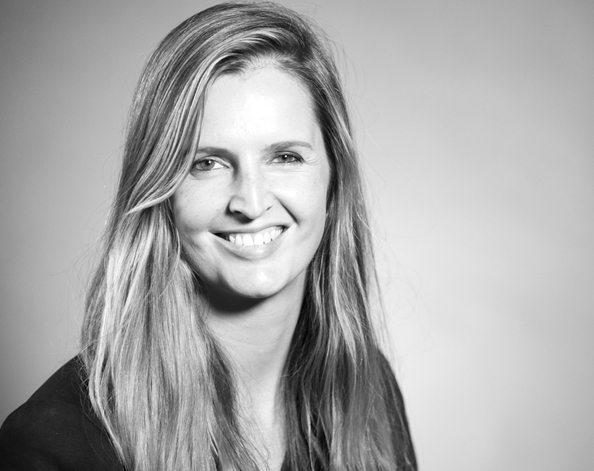I am not a fan of clothes shopping. I would far rather spend my precious leisure time hiking, doing yoga or surfing as a start of the list of 10 000 things I would rather do. The idea of spending hours trawling through a mall with hundreds of shops, and variable sizing in each, is so unappealing. The internet has made this worse rather than better.
Thousands of internet shops have sprung up, again with inconsistent sizing and debatable quality. The ability to return items doesn't appeal to me because it feels inefficient. I can see the appeal of wearing the same outfit every day, as Albert Einstein was reported to have done. He was known for owning several variations of the same grey suit so that he wouldn't have to waste time and brainpower on deciding which outfit to wear every morning.
Other leaders, burdened with many important decisions to make every day, have been known to reduce their 'decision fatigue' in the area of clothing, notably Steve Jobs (black polo neck and blue jeans), Mark Zuckerberg (grey T-shirts and jeans) and Barack Obama (blue and grey suits).
Decision fatigue is just one of the costs of complexity. I am a fan of colour, so narrowing my wardrobe down to a grey scale also does not entirely appeal, despite the upside of simplicity. I would like to have the choice, but not too much.
Too much choice can lead to poor decision-making. Sheena Iyengar, a Columbia University professor of business and author of the book The Art of Choosing, makes the point that a large number of choices can make us worse off, rather than better.
Iyengar pioneered the famous jam test, whereby one group of customers in a supermarket was offered a small variety of flavours of jam to try, while another group was offered a large variety (customers who tried the jams were given vouchers to redeem on purchases of jam).
Those customers offered a smaller variety to try turned out to be more likely to make a purchase than those faced with a larger variety to choose from.
The greater the variety, the more anxious customers became about making the wrong choice – so much so that they often opted out of making any choice at all. Similar findings were made about other products, from shampoo to mutual funds.
A case study: the cost of complexity in news and entertainment

With the advent of cable, and an increase in the number of channels and TVs per household, the buffet of news and sitcoms opened up. Suddenly, it was possible to cater to what people love as individuals, and not give them the lowest common denominator.
A similar point was made in a wonderful economic talk podcast I listened to recently which expanded on the cost of complexity in the realm of news and entertainment. In the 1980s, US households had one or two TVs and a few stations (in SA we had even fewer). The dominant networks – ABC, NBC and CBS – served up 'meat and potato' news and sitcoms that could be watched and would cater for the whole family on the one TV.
"They (the family) are going to have a conversation, and if there's something that one person hates, then you're not going to show it. So, you're going to watch something else. That, of course, affects what the stations are going to put on TV because they're in competition with each other. And they're going to tend to produce bland stuff,” the podcast host said. Thus, the news was more neutral and the sitcoms, happy and generic.
With the advent of cable, and an increase in the number of channels and TVs per household, the buffet of news and sitcoms opened up. Suddenly, it was possible to cater to what people love as individuals, and not give them the lowest common denominator. The internet compounded this with Showmax, Netflix, YouTube, Twitter and so on, and has added more and more options.
One can metaphorically consume a greater variety of entertainment: you can have seaweed sushi, gluten-free vegan and other specific tastes, rather than just stick to the good old meat-and-potato shows and news. The result is fragmentation and a more competitive landscape, with many smaller stations vying for attention and wanting to keep their viewers happy.
The upside of the increased competition is the variety and quality of shows. However, in the news space, the podcast host argues that it has led to more sensational news. This captures attention and fuels outrage, is less neutral and renforces viewers' opinions, all of which makes them feel good about themselves, rather than challenging them.
"To get more views in that competitive landscape, you have to be a little bit louder in favour of the home team, and a little less nuanced," says the podcast.
"You can't just politely disagree with the other tribe. You need to vilify them. Outrage sells when competition is this intense. And, just to get people to pay attention, you have to be more entertaining than the rest of the options that people have for screen time.”
The cost of this complexity, therefore, is a more polarised news and political landscape, a sharper division between left and right, and less appetite for considering the opinions of others.

The increasing choices are also apparent in our own industry. In a South African context, the opening up of exchange controls has meant an increase in investment opportunities.
The paradox of investment choice
The increasing choices are also apparent in our own industry. In a South African context, the opening up of exchange controls has meant an increase in investment opportunities. As in the entertainment example, this means that the upside is more variety and quality of options; the downside is that the choice can be overwhelming.
Our local market of 400 stocks has suddenly become global, with about 45,000. Exchange-traded funds (ETFs) or unit trusts/mutual funds may seem a simpler solution, but which one do you choose? There are also thousands of ETFs and over 100,000 global funds. While this opens investors up to a myriad of choices, it can be overwhelming.
The benefit of diversification (sometimes called 'the only free lunch') also brings with it the possibility of what is known as 'diworsification'.
Investopedia says: "Diworsifcation is a play on the word 'diversification'. A diversification strategy involves an accumulation of assets with varying correlations, which reduces risk and can increase potential returns by minimising the negative effect of any one asset on portfolio performance.
"Diworsification is a concept that is inverse to modern portfolio theory, which helps investors to define an optimal allocation of individual securities across a portfolio, giving investors the best possible return level for the risk that they take on. Modern portfolio theory, however, requires substantial resources, data access and monitoring. This is not always readily available for individual investment portfolios, where diworsification occurs the most.
"Diworsification can occur in a number of ways. Some factors include impulse investing, style drift and generally favouring a particular sector. With impulse investing and sector overweighting, investors overweight their portfolios based on impulse investing tips or high expectations for a specific sector."
The role of financial advisers
Just this weekend, I met someone whose only investments are offshore, in 20-odd stocks. He buys mostly based on what he reads in the news and he is almost entirely invested in tech. I asked him if he ever takes a profit. When does he change his mind about a company? How much time does he commit to drilling down into the companies’ balance sheets? Why is he so concentrated in one sector?
From his answers, it appeared as if he had not given these issues much thought. I asked him if he understood the concept of Situs and how this would affect his portfolio in the event of his death. He had never heard of it.
READ MORE: Death and taxes: Situs explained
Investopedia maintains that "financial advisers are a leading solution for investors seeking to build optimised portfolios and integrate new investments into their portfolios".
"Many financial advisory platforms have optimised portfolio allocation technology that can provide investors with guidance on their overall asset allocation balance and the weight of each security purchase in their portfolio," adds Investopedia.
"Financial advisers also offer rebalancing services that help investors to mitigate drift from high-performing areas of their portfolio. With a professionally advised portfolio, investors can integrate investment securities across the investment universe."
I would certainly concur. In the overwhelming world of choices, it is useful to have someone simplify it for you. In our industry this is the adviser, who analyses the client's risk and objectives, then helps them navigate the numerous choices to help them achieve this. It is of particular value when investing offshore, where there are both different tax jurisdictions to consider as well as an overwhelming amount of choice.
The value of simplification

"An adviser really is a personal shopper of sorts who knows their client's jeans size and knows which store sells the best quality and priced pair, so the client doesn't have to spend hours trawling through the metaphorical mall of investments. That, in a time-poor world, has enormous value."
It is important to have someone who has the resources to manage this correctly. Investec Wealth & Investment, for example, runs an offshore segregated mandate called Global Leaders which draws on a team of analysts in the UK, on outside research and on a committee of investment managers making collaborative decisions in SA and the UK. They carefully research every stock, take profit where they need to, and if the investment case changes, they will sell out of it.
It is a highly actively managed portfolio of global stocks. "It must be much more expensive," I hear you say. Well, no, not really. The cost is 1.5% in total, which includes financial advice, asset allocation and stock section, and all trading costs – and we don't charge performance fees. If you wanted to buy stocks or ETFs offshore, you would pay a platform fee of 0.45% or brokerage in and out of about 0.5%, depending on which provider you used.
An ETF would have cost, say, 0.5% and I would highly recommend having an adviser, which would add 0.5% to the cost. In effect, you have a proactively managed, highly resourced portfolio of stocks with financial advice, for a similar cost to buying your own ETFs, without the stress and anxiety of having to choose which one of the thousands on offer you should hold.
Coming back to my initial musing, an adviser really is a personal shopper of sorts who knows their client's jeans size and knows which store sells the best quality and priced pair, so the client doesn't have to spend hours trawling through the metaphorical mall of investments. That, in a time-poor world, has enormous value.
Receive Focus insights straight to your inbox




